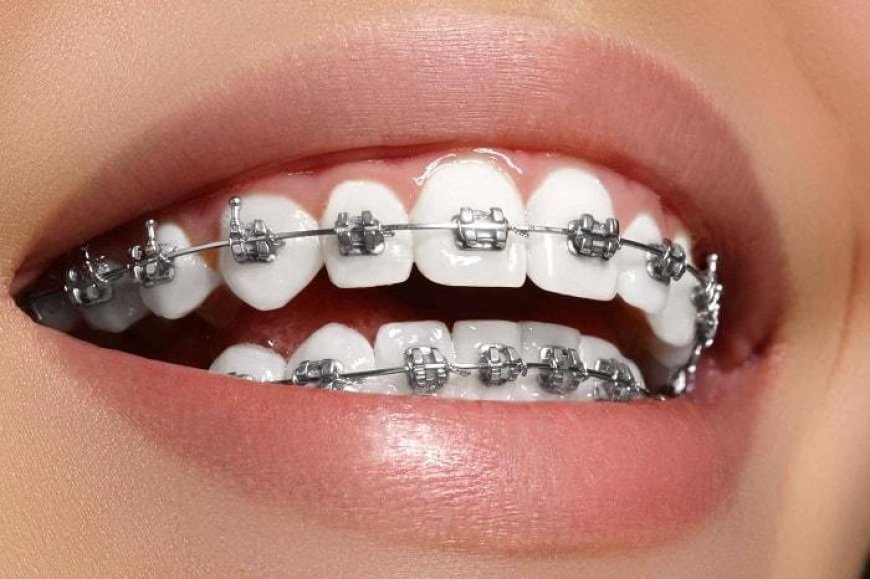Dental Toothache: Causes, Symptoms, Treatment, and Prevention
A dental toothache is a common yet distressing problem that affects people of all ages.

A dental toothache is a common yet distressing problem that affects people of all ages. The pain can range from mild discomfort to severe, throbbing pain and can significantly impact daily activities. Understanding the causes, symptoms, treatment options, and preventive measures for dental toothache is essential for maintaining good oral health and preventing future issues.
Causes of Dental Toothache
- Tooth Decay: One of the most common causes of toothaches is tooth decay or cavities. Bacteria in the mouth produce acids that erode the tooth enamel, leading to cavities that can expose the sensitive inner layers of the tooth.
- Gum Disease: Gingivitis and periodontitis are forms of gum disease that can cause toothaches. Inflammation and infection of the gums can lead to pain and discomfort.
- Tooth Abscess: An abscess is a pocket of pus that forms in the tooth or gums due to bacterial infection. It can cause severe pain and swelling.
- Tooth Fracture: A cracked or broken tooth can cause pain, especially when chewing or exposed to temperature changes.
- Tooth Eruption: Teething in children or the eruption of wisdom teeth in young adults can cause temporary tooth pain.
- Bruxism: Grinding or clenching teeth, often during sleep, can lead to tooth pain and sensitivity.
- Dental Procedures: Recent dental work, such as fillings, crowns, or extractions, can cause temporary toothache.
- Sinus Infection: Sinusitis can cause referred pain to the upper teeth due to their proximity to the sinus cavities.
Symptoms of Dental Toothache
- Persistent or intermittent tooth pain
- Sharp, throbbing, or aching pain
- Swelling around the tooth or gums
- Sensitivity to hot, cold, or sweet foods and drinks
- Pain when chewing or biting
- Red, swollen, or bleeding gums
- Foul-tasting drainage from an infected tooth
- Fever and headache (in cases of severe infection)
Treatment Options for Dental Toothache
- Over-the-Counter Pain Relievers: Non-prescription pain relievers like ibuprofen or acetaminophen can help manage toothache pain temporarily.
- Cold Compress: Applying a cold compress to the outside of the cheek can reduce swelling and numb the pain.
- Saltwater Rinse: Rinsing with warm saltwater can help reduce inflammation and clean the affected area.
- Clove Oil: Clove oil has natural analgesic and antibacterial properties. Applying a small amount to the affected tooth can provide temporary relief.
- Dental Treatment: Professional dental care is often necessary to address the underlying cause of a toothache. Treatment options include:
- Fillings: For cavities, the dentist will remove the decayed part of the tooth and fill it with a dental material.
- Root Canal: For severe decay or infection, a root canal may be needed to remove the infected pulp and seal the tooth.
- Tooth Extraction: Severely damaged or decayed teeth may need to be extracted.
- Antibiotics: For infections, antibiotics may be prescribed to clear the infection.
- Gum Treatment: For gum disease, scaling and root planing or other periodontal treatments may be necessary.
Preventive Measures for Dental Toothache
- Maintain Good Oral Hygiene: Brush your teeth at least twice a day with fluoride toothpaste and floss daily to remove plaque and prevent cavities and gum disease.
- Regular Dental Check-ups: Visit your dentist regularly for check-ups and cleanings. Early detection of dental issues can prevent toothaches.
- Healthy Diet: Limit sugary and acidic foods and drinks that can contribute to tooth decay. Eat a balanced diet rich in vitamins and minerals.
- Protect Your Teeth: Wear a mouthguard if you grind your teeth or play contact sports to protect your teeth from damage.
- Avoid Tobacco: Smoking or using tobacco products increases the risk of gum disease and tooth decay.
- Hydration: Drink plenty of water to help wash away food particles and bacteria.
- Use Dental Sealants: Dental sealants can protect the chewing surfaces of back teeth from decay.
When to See a Dentist
It’s important to see a dentist and Dental Services if you experience any of the following:
- Severe or persistent tooth pain
- Pain that lasts more than 1-2 days
- Signs of infection (swelling, fever, foul-tasting drainage)
- Difficulty chewing or biting
- Swollen or bleeding gums
- Tooth pain accompanied by an earache or sinus pressure
Home Remedies for Temporary Relief
While professional dental care is crucial, some home remedies can provide temporary relief until you can see a dentist:
- Garlic: Garlic has natural antibacterial properties. Crushing a garlic clove and applying it to the affected tooth can help alleviate pain.
- Hydrogen Peroxide Rinse: Dilute hydrogen peroxide with water and rinse your mouth to reduce bacteria and relieve pain.
- Peppermint Tea Bags: Peppermint has numbing properties. Apply a cooled peppermint tea bag to the affected area.
- Vanilla Extract: Vanilla extract contains alcohol, which can help numb pain. Apply a small amount to the affected tooth with a cotton swab.
- Guava Leaves: Chewing on fresh guava leaves or using a guava leaf rinse can help reduce pain and inflammation.
Conclusion
A dental toothache and Dentist in Mckinney can be a painful and disruptive experience, but understanding the causes, symptoms, and treatment options can help you manage the pain effectively. Preventive measures, such as maintaining good oral hygiene and regular dental visits, are essential for preventing toothaches. If you experience persistent or severe tooth pain, it’s crucial to seek professional dental care to address the underlying issue and prevent further complications. With the right care and attention, you can maintain a healthy smile and avoid the discomfort of dental toothaches.












